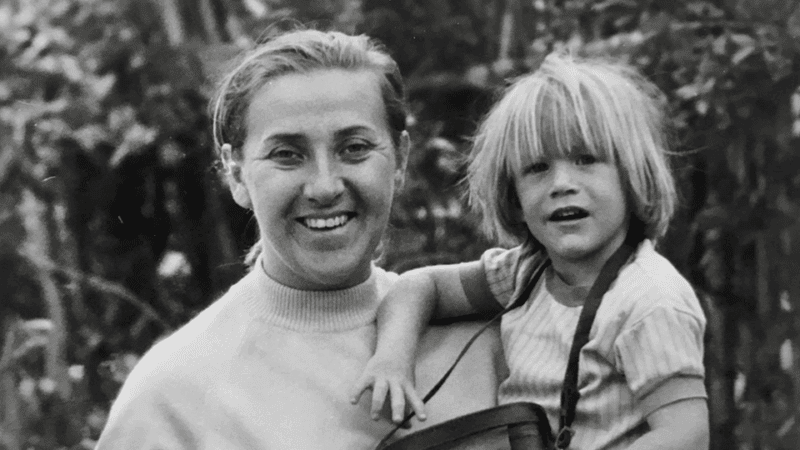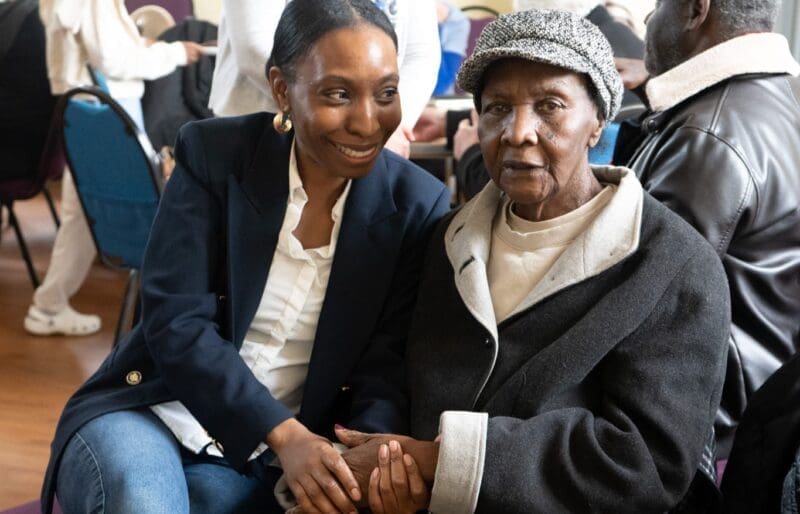
The uncomfortable reality of grief
Steve reflects on the grief journey since his mum, who lived with Alzheimer’s disease, died in 2022.

Kerry Lyons, our first ever Consultant Admiral Nurse for Frailty, shares why she became a dementia specialist nurse and what her new role involves.
I have worked with Dementia UK for two years as a Consultant Admiral Nurse for Acute Services. Prior to that, I worked as an Acute Admiral Nurse within a hospital setting.
I have worked within the acute care setting for 26 years. During that time I have come into contact with and supported many families living with dementia. I have seen the struggles and challenges that families often face trying to get the right information, care and support at the right time. I wanted to be in a role where I could make these situations better for families living with dementia.
I have first-hand experience of supporting a loved one with dementia – I therefore absolutely recognise the value of having access to an Admiral Nurse, who are specialist dementia nurses who give expert practical, clinical and emotional support to families living with dementia.
I feel incredibly privileged to be an Admiral Nurse, supporting and caring for families living with dementia.
Within my previous Service Development Consultant Admiral Nurse role, I was able to support new nurses to develop both skills and services to deliver high-quality nursing practice within hospital settings. Growing more Admiral Nurse services within the acute setting is a strategic priority and I have been able to support significant development within this growing field of Admiral Nursing over the last two years.
My new post will place me in a more clinical-facing role, supporting families living with dementia and the complexities of frailty. In addition to this, I will act as an ambassador for Dementia UK in raising awareness of frailty and dementia, improving resources and related collateral to share with families and professionals, driving policy and influencing clinical practice.
Frailty is a long-term condition related to the ageing process in which multiple body systems gradually lose their in-built reserves. It is estimated that around 50% of people over the age of 65 are living with some degree of frailty, and some people experience frailty earlier in life.
People living with frailty are less able to adapt to stress factors such as acute illness, injury, or changes in their environment, personal or social circumstances, and such changes are more likely to result in adverse health outcomes and loss of independence.
Frailty often goes unidentified, missing vital opportunities to improve outcomes for families affected by dementia. We hope that the introduction of this role will positively affect this position by increasing awareness.
This is a very new post. I will be providing emotional support and practical advice to families affected by frailty alongside dementia through telephone and online contact. Families will be referred to me by the Admiral Nurse Dementia Helpline, and the Virtual clinics team.
My aim is to help these families understand frailty and dementia and develop strategies to cope with the changes that they may face, now and in the future. This is especially important as it can be a real struggle for people to find the support they need locally.
My role also involves raising awareness of frailty, supporting other professionals working with families living with frailty and dementia, and developing new information resources.
Families living with frailty and dementia, may face many challenges. You may be overwhelmed and feel like you’re on your own. I would always advise you to ask for help – and keep pushing for the support you need.
Families living with dementia always share with me the importance of being able to meet other people in the same situation – whether that’s through local support groups or online support.
Many people who have a family member with dementia find themselves in the role of full-time or part-time carer. When you are looking after someone around the clock, you might find it difficult to think about your own needs, so remember to get enough rest, and still try to take part in the activities you enjoy. You may not be able to continue caring for the person with dementia if you neglect your own health and wellbeing.
Remind yourself of what a great job you are doing within your caring role, and always be kind to yourself. Reach out early for any support you feel you need, or might need in the future. By looking after yourself first (both physically and psychologically), you’re more likely to have the strength to look after the person you care for.

Steve reflects on the grief journey since his mum, who lived with Alzheimer’s disease, died in 2022.

We explain what dementia support groups and cafés are and how they can benefit people affected by dementia.

Marianne Jones is a journalist and podcaster, and an ambassador for Dementia UK. She is proudly presenting the second season of our podcast, My life with Dementia.